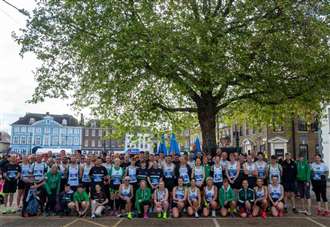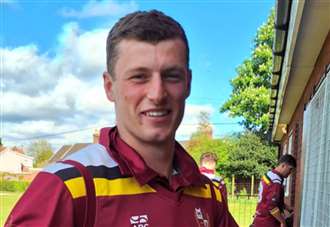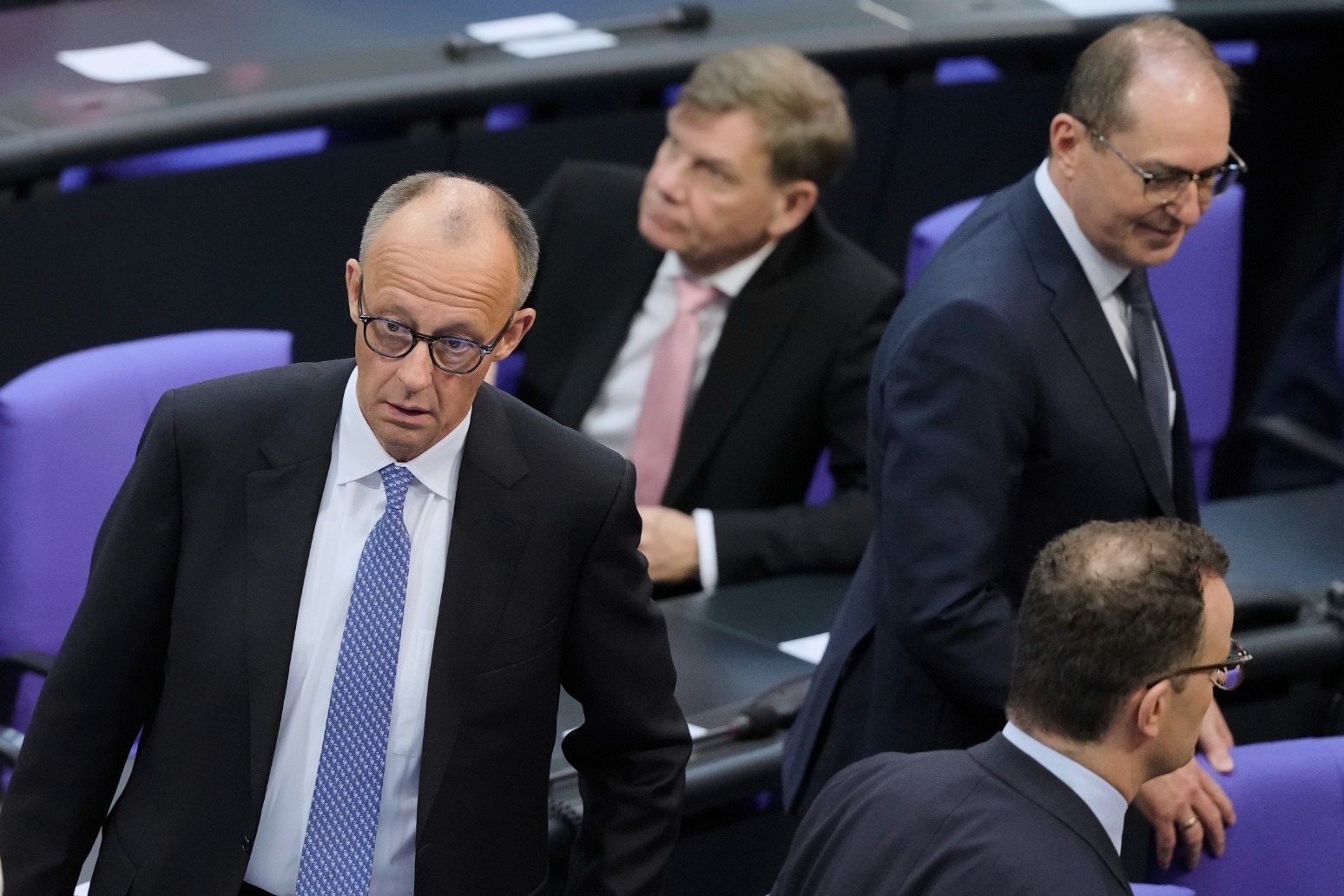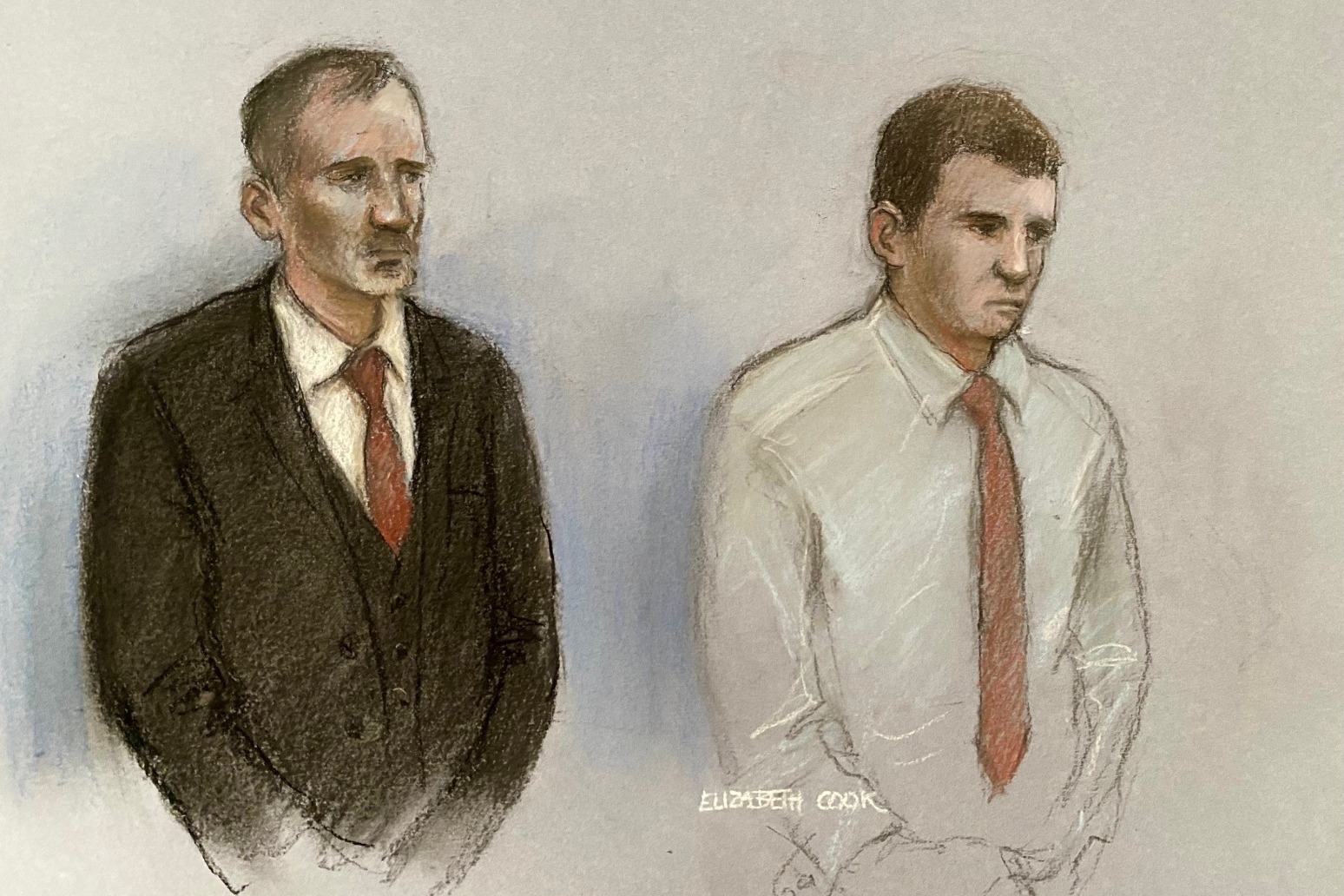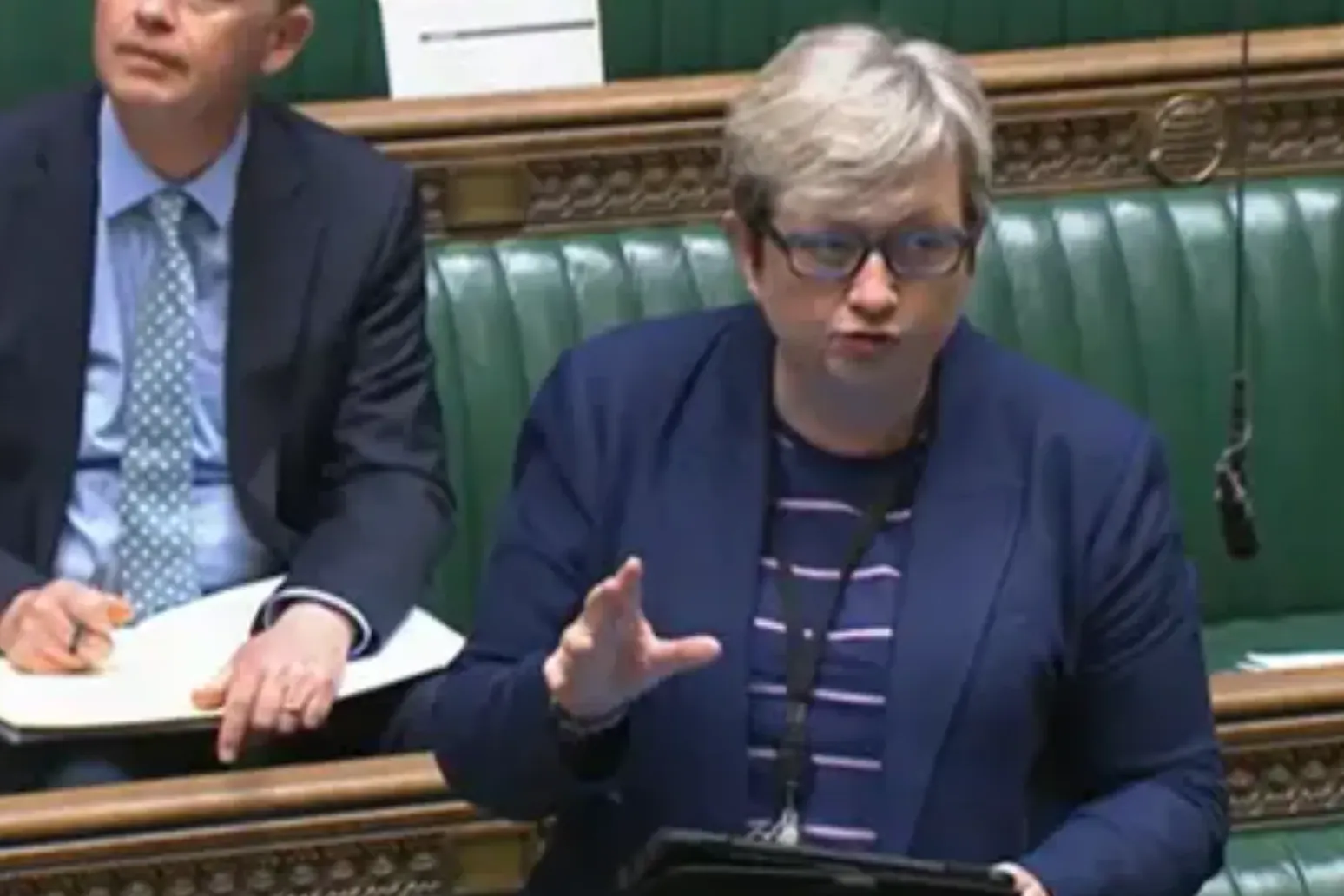
Ministers are facing calls to make further concessions to their sweeping asylum reforms, after senior Tory MPs joined a small backbench rebellion amid a parliamentary tussle over the Illegal Migration Bill.
Senior Tories used Tuesday’s debate to call for further reforms, as MPs spent more than three-and-a-half hours holding 18 votes in the Commons that saw several amendments made by the House of Lords overturned.
The Illegal Migration Bill was mauled by peers, who inflicted 20 defeats on the Government and demanded a raft of revisions.
The Home Office offered several concessions at the start of the week, including on time limits for the detention of children and pregnant women as well as removing a clause so the law, if enacted, will no longer apply retrospectively from when it was first announced in March.
The Government overturned a number of amendments on Tuesday, but faced criticism from its own benches.
Former prime minister Theresa May was among 16 Conservative MPs who voted against the Government amid concerns about modern slavery provisions in the Bill.
Mrs May told the Commons: “I know that ministers have said this Bill will enable more perpetrators to be stopped, but on modern slavery I genuinely believe it will do the opposite.
“It will enable more slave drivers to operate and make money out of human misery. It will consign more people to slavery. No doubt about it, I think if Lords amendment 56 is overthrown that will be the impact.”
MPs voted 285 to 243 to reject the amendment, which sought to retain protections for victims of modern slavery who have been exploited in the UK, and prevent their removal.
Temporary protection against removal from the UK is currently given to suspected victims of modern slavery or human trafficking while their case is considered.
But the Bill in its original form removed this protection for those judged to have entered the UK illegally, with peers then voting to insert safeguards.
There were also rebellions from Conservative MPs connected to the limits and conditions of detaining unaccompanied children, including Tory former ministers Sir Bob Neill, Vicky Ford, Tracey Crouch and Caroline Nokes.
There were 15 Conservative MPs, including former leader Sir Iain Duncan Smith, who opposed adding Government amendments linked to the powers to detain unaccompanied children.
Other amendments to be overturned included a proposal from the Archbishop of Canterbury that would have forced the Government to draw up a 10-year strategy for collaborating internationally on refugees and human trafficking to the UK.
Conservative former minister Tim Loughton told MPs that “assurances that we were promised have not materialised or, if they have, I am afraid nobody understands them”, as he bemoaned the timing of the concessions.
He said: “On that basis, I’m afraid we cannot and I speak for many others, I hope on this side, take these amendments in lieu at face value and more work needs to be done.”
Mr Loughton, speaking later on BBC Newsnight, said that rebels had “genuine” concerns and were not trying to wreck the proposed legislation.
He predicted “a bit of brinkmanship” between the Commons and the Lords in the coming days, as he called on the Government to compromise.
“I think the Government needs to be a bit more practical giving some concessions over the next few days and then again, everyone will rally behind it.”
The Bill is a key part of Prime Minister Rishi Sunak’s bid to deter people from crossing the Channel in small boats.
The reforms would prevent people from claiming asylum in the UK if they arrive through unauthorised means.
The Government also hopes the changes will ensure detained people are promptly removed, either to their home country or a third country such as Rwanda.
More than 13,000 migrants have crossed the Channel to the UK so far this year, including more than 1,600 in the last four days, the latest Government figures show.
Opening Tuesday’s debate, immigration minister Robert Jenrick paid tribute to the Lords for “undertaking its proper role as a revising chamber” but said some of the changes were “little short of wrecking amendments”.
Ahead of the debate, more than 60 people – including victims of torture, refugees, asylum seekers and those already granted asylum in the UK – as well as around 30 campaign groups wrote to MPs to express their “horror” at the Bill and urge them to oppose the proposed legislation.
The Bill will return to the Lords on Wednesday where peers will decide what further changes they want to make as part of the parliamentary process known as ping-pong.
The draft legislation will move between the Commons and the Lords until both Houses can agree on the final wording.
Home Secretary Suella Braverman, after the votes concluded, accused Labour of siding “with the criminals gangs that trade in human misery instead of the British people”.
Labour’s Yvette Cooper had earlier called the Bill a “con”, with the shadow home secretary accusing Conservatives of giving up on “common decency and common sense”.
The Scottish National Party said that the Bill had brought “shame to the House of Commons”.
Published: by Radio NewsHub










